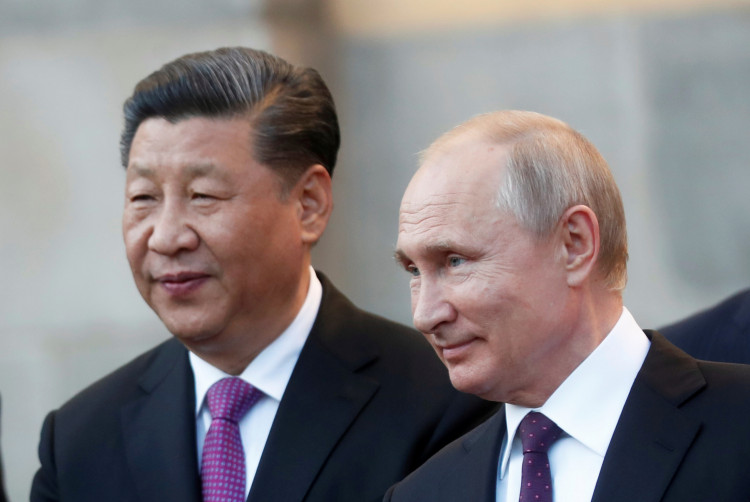At a critical juncture for global geopolitics, Chinese President Xi Jinping and Russian President Vladimir Putin are intensifying their push for greater regional cooperation and security within the framework of the Shanghai Cooperation Organization (SCO). Addressing the SCO's annual summit in Kazakhstan, Xi called on member states to resist "external interference" and consolidate unity amid what he described as real challenges of division and interference.
"We should work together to resist external interference ... and firmly grasp our own future and destiny, as well as regional peace and development, in our own hands," Xi was quoted as saying by Chinese state broadcaster CCTV. The SCO, initially founded in 2001 by China, Russia, Kazakhstan, Kyrgyzstan, Tajikistan, and Uzbekistan to combat terrorism and promote border security, has evolved into a broader geopolitical counterweight to Western alliances, particularly those led by the United States.
This year's summit saw Belarus, a staunch ally of Russia, officially joining the SCO, following Iran's admission last year. The bloc's expansion is part of a strategic transformation driven by Beijing and Moscow to fortify their influence in Eurasia. Indian Prime Minister Narendra Modi's absence from the event further underscores the perception of the SCO's growing anti-Western orientation.
Xi Jinping emphasized the need for the SCO to address internal differences peacefully, seek common ground, and resolve cooperation challenges. He warned against the "real threat of Cold War mentality" and called for the protection of the right to development against the "real risks of small yards with high fences," a veiled reference to U.S. strategies aimed at restricting key technologies from China. Xi also highlighted the importance of promoting scientific and technological innovation and maintaining stable industrial and supply chains.
On the sidelines of the summit, Xi and Putin held bilateral talks, where they celebrated the deepening alignment between China and Russia. Putin described the current state of Russia-China relations as "the best period in their history," positioning their cooperation as a stabilizing force on the international stage. "Russian-Chinese cooperation in global affairs serves as a main stabilizing factor on the international stage, and we continue to further enhance it," Putin told Xi.
The meeting between Xi and Putin marks their second face-to-face discussion in two months, following Putin's visit to Beijing in May. This interaction comes on the heels of a significant defense pact between Russia and North Korea, further complicating the geopolitical landscape. The close ties between China and Russia have drawn sharp criticism from the U.S. and Europe, especially since the two countries declared a "no limits" partnership in February 2022, just weeks before Russia's full-scale invasion of Ukraine.
China has surpassed the European Union to become Russia's top trade partner, providing critical support to Russia's heavily sanctioned economy. Both nations have continued joint military exercises, including with Iran, showcasing their strategic alliance. The U.S. has accused China of supplying Russia with dual-use goods that bolster its military capabilities, allegations that Beijing denies.
In his remarks, Xi reiterated the importance of China and Russia upholding their "lasting friendship" amid global turbulence. He stressed the need for both countries to safeguard their "legitimate rights and interests" and uphold the basic norms governing international relations. "China and Russia should continue to strengthen comprehensive strategic coordination, oppose external interference, and jointly safeguard regional tranquility and stability," Xi said, according to a readout from China's Foreign Ministry.
The SCO summit also saw calls for a new architecture of cooperation in Eurasia, with Putin advocating for an alternative to the Eurocentric and Euro-Atlantic models. He blamed the West for the ongoing conflict in Ukraine and expressed Russia's readiness to negotiate, provided Kyiv and its allies accept Moscow's terms.
Putin highlighted the increasing use of national currencies in trade among SCO countries, proposing the creation of a new payment system within the group. This move aims to reduce dependency on the U.S. dollar, especially in light of Western sanctions that have isolated Russia from traditional payment systems like SWIFT.






